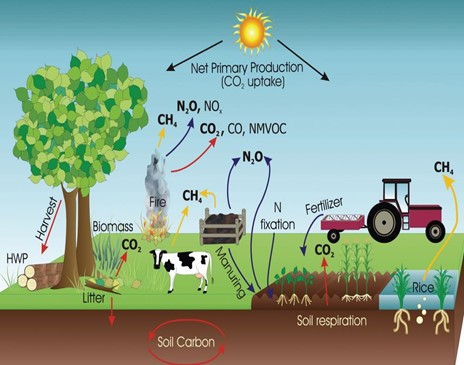PREVIOUS
Koronivia Joint Work on Agriculture
December 9 , 2022
1135 days
976
0
- India opposed the Koronivia Joint Work on Agriculture (KJWA).
- It is a landmark decision under the United Nations Framework Convention on Climate Change (UNFCCC).
- KJWA sought to minimize greenhouse gas emissions from the agriculture sector.
- It aims to recognize the unique potential of the agriculture sector in addressing the climate change.
- It addresses 6 interrelated topics on soil, nutrient usage, livestock, water, methods for gauging adaptation and socio-economic and food security dimensions of climate change across the agriculture sector.
- India held that emissions from the agricultural sectors are not “luxury” emissions but “survival emissions” of the poor.
- India pointed out that developed countries owe the world a carbon debt of 790 gigatonnes of carbon dioxide.
- It is worth about 79 trillion USD even at the modest pricing of 100 USD per tonne.
- South Asia’s historic total carbon emissions from the pre-industrial period until 2019 are less than 4 per cent despite hosting a quarter of the global population.
- India’s per capita yearly emissions are about one-third of the global average.
- If the entire world emits carbon at the same per capita level as India, climate crisis can be addressed.

Leave a Reply
Your Comment is awaiting moderation.


